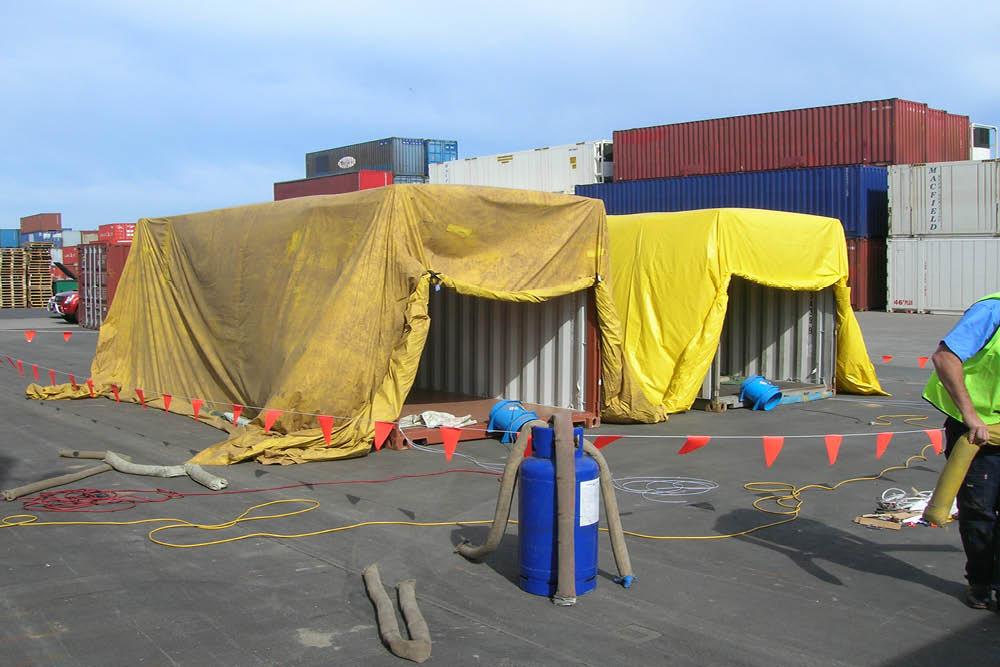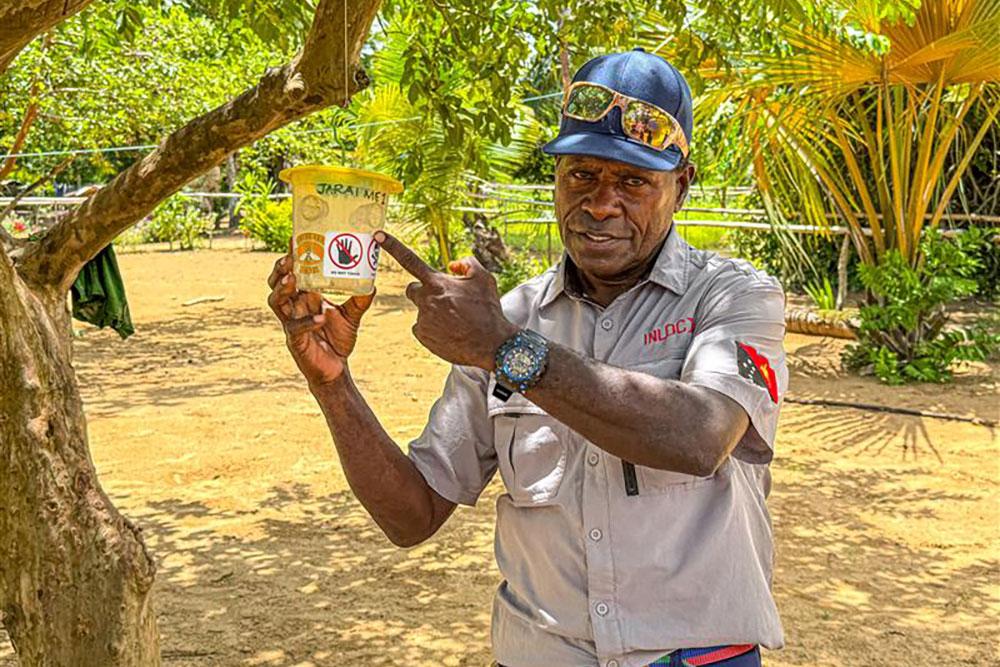Biosecurity Detector dog Petal has sniffed out a live Brown Marmorated Stink Bug (BMSB) in a passenger’s duffle bag at Brisbane International Airport.
Deputy Secretary of Biosecurity, Dr Chris Locke, said this is the second live detection of a BMSB by a detector dog since 2018 when the department started training dogs to detect BMSB.
“BMSB is exotic to Australia and would devastate our cropping industries if it were to establish here,” Dr Locke said.
“The pest feeds on more than 300 types of plants and trees and is known for hitchhiking in cargo and in traveller’s luggage.
“Petal and her handler were screening passengers arriving from Taipei when she responded to a passenger’s duffle bag where the BMSB was found.
“From this detection, biosecurity officers proceeded to conduct a full inspection of the passenger’s remaining baggage and no more bugs were found.
“The bug was secured and sent to entomologists for identification where entomologists confirmed that it was a BMSB.
“The passenger was an Australian citizen who started their journey in Serbia, connecting through Istanbul and Taiwan.
“BMSB doesn’t pose a health risk to humans but is a nation priority plant pest as it can breed profusely to become a household nuisance and threat to the horticulture sector.
“The passenger had no idea they were harbouring a high-risk pest, so no fine was issued.
“That’s why it’s essential, however, that travellers stay vigilant to hitchhiking pests like BMSB this holiday season.
"They stow away in all manner of places, including suitcases.”
For more information on what to look for when returning home from high-risk countries, visit: https://www.agriculture.gov.au/biosecurity-trade/pests-diseases-weeds/plant/brown-marmorated-stink-bug
Fast Facts
- BMSB is native to Eastern Asia, however, over the past 10 years has hitchhiked and spread throughout 37 countries in Europe and North America.
- The detector dog program currently has 37 dogs trained to detect BMSB.
- The first live BMSB detected by a detector dog was in 2021.
- In 2011, the department implemented multi-response detector dogs that were able to work across all pathways. Having multipurpose dogs allows for our biosecurity detector dog teams to be flexibly deployed across airports, mail centres and cargo facilities.



